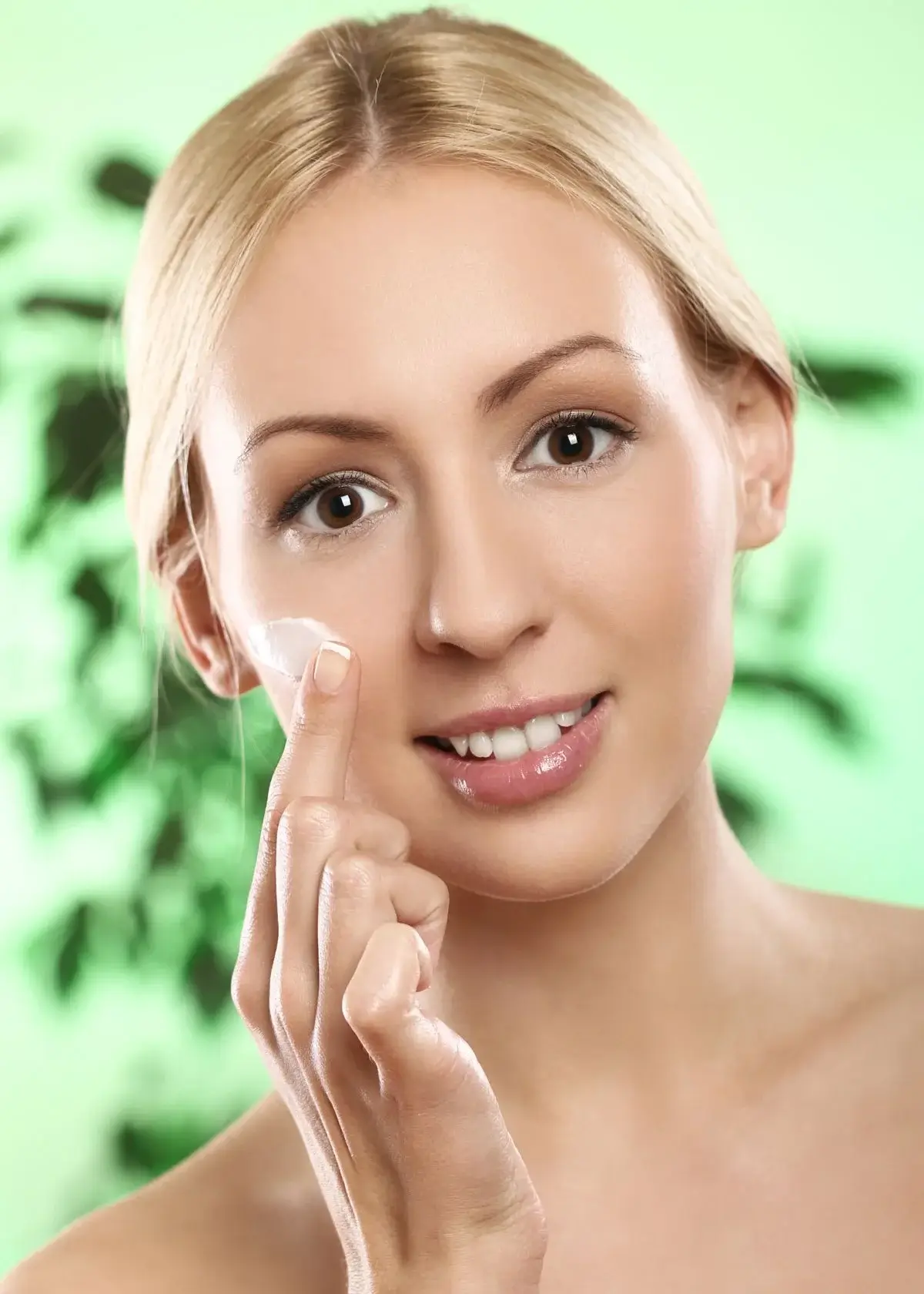In the skincare world, face creams have become a staple in many beauty routines. They offer many benefits, from hydrating the skin to reducing the signs of aging. One type of face cream that has gained popularity in recent years is polypeptide face creams. These creams are formulated with polypeptides, short chains of amino acids that play a crucial role in skin health. In this blog post, we will explore the benefits of polypeptide face creams and why they are worth considering for your skincare routine.
Skin Nourishment and Hydration
Polypeptide face creams provide deep nourishment and hydration to the skin. The small molecular size of polypeptides allows them to penetrate the skin more effectively, delivering essential nutrients and moisture to the deeper layers. This helps to plump the skin, reduce dryness, and improve overall skin texture.
Collagen Production and Anti-Aging
Collagen is a protein that gives our skin its structure and elasticity. As we age, collagen production naturally decreases, leading to the formation of wrinkles and sagging skin. Polypeptide face creams contain ingredients that can stimulate collagen synthesis, helping to restore the skin's elasticity and reduce the appearance of fine lines and wrinkles. Incorporating a polypeptide face cream into your skincare routine can support your skin's natural collagen production and maintain a more youthful complexion.
Improved Skin Elasticity and Firmness
Loss of skin elasticity is another common sign of aging. Polypeptide face creams can help enhance skin elasticity and firmness by promoting elastin production, a protein responsible for maintaining skin elasticity. With continued use, you may notice a visible improvement in your skin's tightness and overall firmness.
Enhanced Skin Texture and Tone
Polypeptide face creams have the potential to even out skin texture and improve overall skin tone. By encouraging cell turnover and promoting the growth of new, healthy skin cells, polypeptides can help fade dark spots, reduce the appearance of acne scars, and give your complexion a smoother, more refined look. With regular use, you can achieve a more balanced and radiant complexion.
Protection and Repair
In addition to their anti-aging benefits, polypeptide face creams offer protection and repair properties. They can provide a barrier against environmental damage, such as UV rays and pollution, helping to prevent premature aging and skin damage. Furthermore, polypeptides have been found to aid in skin repair by supporting the skin's natural healing process and reducing inflammation.
Polypeptide face creams have emerged as a powerful tool in skin care, offering a range of benefits to improve skin health and appearance. These creams can transform your skincare routine from nourishing and hydrating the skin to stimulating collagen production and enhancing skin elasticity. Incorporating a polypeptide face cream into your daily regimen can support your skin's natural processes and achieve a more youthful, glowing complexion. Why not give polypeptide face creams a try? Your skin will thank you for it.
After extensive research and analysis, we have curated a list of the best polypeptide face creams that elevate your skincare routine. These groundbreaking formulas harness the power of polypeptides to stimulate collagen production, promote firmness, and rejuvenate your skin. Bid farewell to fine lines, wrinkles, and uneven texture as you embrace a radiant and youthful complexion. To discover your new Holy Grail polypeptide face cream, follow the link. Unlock the secret to ageless beauty and indulge in the transformative results. Your skin deserves nothing less!
What makes a polypeptide face cream effective in reducing wrinkles?
The efficacy of a polypeptide face cream in reducing wrinkles is attributed to its key ingredient—peptides. Peptides, such as Matrixyl and Syn-Coll, stimulate collagen production, fortifying the skin's structure and visibly reducing fine lines. This transformative action addresses the root cause of wrinkles, promoting a smoother and more youthful complexion. The potency of the formulation, coupled with peptides' ability to enhance skin elasticity and resilience, establishes polypeptide face creams as a potent ally in the anti-aging skincare arsenal, contributing to visible and lasting wrinkle reduction.

What are some common misconceptions about polypeptide face creams?
Misconceptions surrounding polypeptide face creams are pervasive, such as the assumption that they are exclusively for mature skin. Contrarily, their versatile formulations cater to a broad spectrum of ages and skin types. Another misconception is that all peptides work similarly; however, specific peptides target distinct skincare concerns. It's crucial to debunk these myths, recognizing polypeptide face creams as adaptable, multifunctional, and suitable for various skincare needs. Dispelling preconceived notions allows users to embrace these creams' nuanced benefits, fostering a more informed and effective skincare approach.

What should I consider when choosing a polypeptide face cream?
Choosing an effective polypeptide face cream involves a thoughtful consideration of key factors. Opt for formulations with clinically proven peptides, such as Matrixyl or Syn-Coll, ensuring optimal collagen stimulation and anti-aging benefits. Assess the overall ingredient profile, seeking advantages like antioxidants and hydrating agents for comprehensive skincare. Tailor choices to your specific skin type—individuals with sensitive skin may benefit from fragrance-free options. Consider the concentration of peptides within the formulation for targeted and effective results. Third-party certifications indicating quality and safety enhance the credibility of chosen products. By evaluating these elements, individuals can make informed decisions, selecting polypeptide face creams that align with their unique skincare goals and preferences.

How do environmental factors affect the performance of polypeptide face creams?
Environmental factors wield a substantial influence on the performance of polypeptide face creams. UV exposure, a significant challenge, emphasizes the need for added sun protection with these creams. Pollution and free radicals in the environment can compromise the efficacy of polypeptides, necessitating formulations with robust antioxidants for reinforced protection. Climate variations impact hydration needs, influencing the choice of other moisturizers for comprehensive skincare. Acknowledging these environmental dynamics empowers users to optimize the performance of polypeptide face creams, adapting their skincare routine to address specific challenges posed by external elements and fortifying the skin against environmental stressors.

How often should I apply a polypeptide face cream for optimal results?
The optimal application frequency of a polypeptide face cream hinges on individual factors and the specific formulation. Initiate with once or twice daily application for gradual integration into the skincare routine. Consistent use, both morning and night, aligns with the skin's natural repair processes, maximizing the transformative benefits of peptides. Adjust the frequency based on skin response and formulation guidelines to strike a harmonious balance. Overuse may lead to irritation, underscoring the importance of a measured approach. Users ensure sustained and optimal results by adhering to a customized application frequency, allowing polypeptide face creams to work synergistically with the skin's natural processes for lasting improvements.
Should I apply a polypeptide face cream before or after moisturizing?
The strategic sequence of applying a polypeptide face cream for moisturizing is crucial for optimal absorption and efficacy. Begin with a clean, toned canvas, applying the polypeptide face cream first. This ensures peptides can penetrate unhindered, initiating their transformative action at the cellular level. Follow with a moisturizer to lock in hydration, creating a protective barrier that complements the peptides' effects. This strategic layering sequence ensures peptides can effectively reach skin cells, maximizing their impact on collagen synthesis and overall anti-aging benefits.







